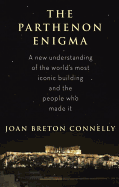 Eric Jager (Get this book)
Eric Jager (Get this book) Few works of fiction will grab readers' attention as well as Jager's riveting story of a 1407 murder mystery that split the royal family of France. When Louis of Orleans, brother and frequent regent of King Charles VI, was brutally murdered in a Paris street, the provost of Paris, Guillaume de Tignonville was under pressure to solve the crime quickly. He had just overseen the execution of two murderers, whose claim to the right of "clergy" would eventually come back to haunt him. Jager shares his extensive knowledge of medieval Paris, employing entertainingly meticulous descriptions throughout the book. An impressive combination of mystery, crime story, and social and political history.--Kirkus








